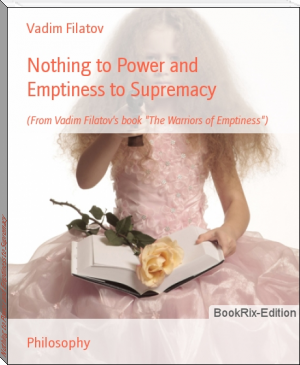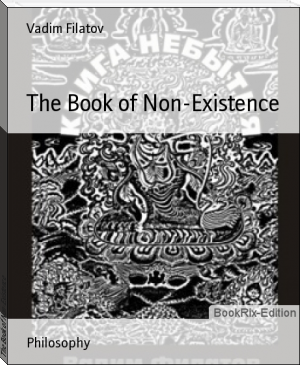The Nihilism of Dostoevsky, Vadim Filatov [top reads txt] 📗

- Author: Vadim Filatov
Book online «The Nihilism of Dostoevsky, Vadim Filatov [top reads txt] 📗». Author Vadim Filatov
In 1903 – occurred the philosophical suicide of Otto Weininger. This Jewish philosopher hated women and Jews. When he found many female properties in his own character, this led him to despair and death.
"The Teenager"
In general, practically all teenagers are nihilists. And some of them will not mature at all. Thus the hero of "The Teenager", Versilov, spoke: "The real nihilist can't, shouldn't reconcile with anything from existing. He doesn't dare to go on transactions not under any circumstances".
"The Brothers Karamazov"
“Everyone is striving to unite particulars and find at least some general sense in the general senselessness.”
― Fyodor Dostoevsky, The Brothers Karamazov
Among all the heroes of Dostoevsky Ivan Karamazov was the same one, who had luck to consider an internal calling infinity of a Non-Existence. Ivan has refused to accept the world, which basis was senseless redistribution of Evil and, as a result of this redistribution, appeared “a tear of the child”. Ivan went further than all the previous personages presented in philosophical novels of Dostoevsky, carrying out his nihilistic revolt. He has approved the radical point of view according to which anything isn't present:
“... and is there immortality of some sort, just a little, just a tiny bit?”
“There is no immortality either.”
“None at all?”
“None at all.”
“There’s absolute nothingness then. Perhaps there is just something? Anything is better than nothing!”
“No. Only zero.”
“H’m! Good Lord! to think what faith, what force of all kinds, man has lavished for nothing, on that dream, and for how many thousand years. Who is it laughing at man? Ivan For the last time, once for all, is there a God or not? I ask for the last time!”
“And for the last time there is not.”
“Who is laughing at mankind, Ivan?”
“It must be the devil,” said Ivan Karamazov, smiling.
“And the devil? Does he exist?”
“No, there’s no devil either.”
(The Brothers Karamazov by Fyodor Dostoyevsky)
Thus, the main secret of Ivan Karamazov's philosophy and ethics consisted on his understanding and apologia of absolute absence. Where everything was dissolved in anything, the original philosophical nihilism has dominated.
CONCLUSIONS
The notes of this paradoxalist do not end here, however. He could not
refrain from going on with them, but it seems to us that we may stop
here.
― Fyodor Dostoevsky, Notes from Underground
Thus, our world constantly develops its false reality, following the law of redistribution of the evil. Therefore, as the first Christian eremites, "desert fathers" were convinced very long time ago, the person subordinated to the world, is subordinated to the evil. "Laws of the nature can't be forgiven", - thus Dostoevsky's underground protagonist spoke. So the nature is such a lie which is necessary to destroy.
The idea of rejection not only the socio-political device of Russia, but also the world as a whole, was characteristic for Dostoevsky's most intellectual - powerful, mysterious characters: such as an Underground Man, Svidrigaylov, Hippolyte, Stavrogin, Kirillov, Ivan Karamazov. And this wasn't casual, because any intellectualism, being brought up to its logical end, would came to an end with the nihilistic revolt. The heroes, which have denying the world, couldn't win against it yet, but, unlike absolutely artificial, schematic characters, like prince Myshkin and the participants of a circle of Peter Verchovensky, they wasn't won by the world. Thus was the existential and ontological sense of philosophical works of Dostoevsky.
Publication Date: 03-03-2013
All Rights Reserved





Comments (0)